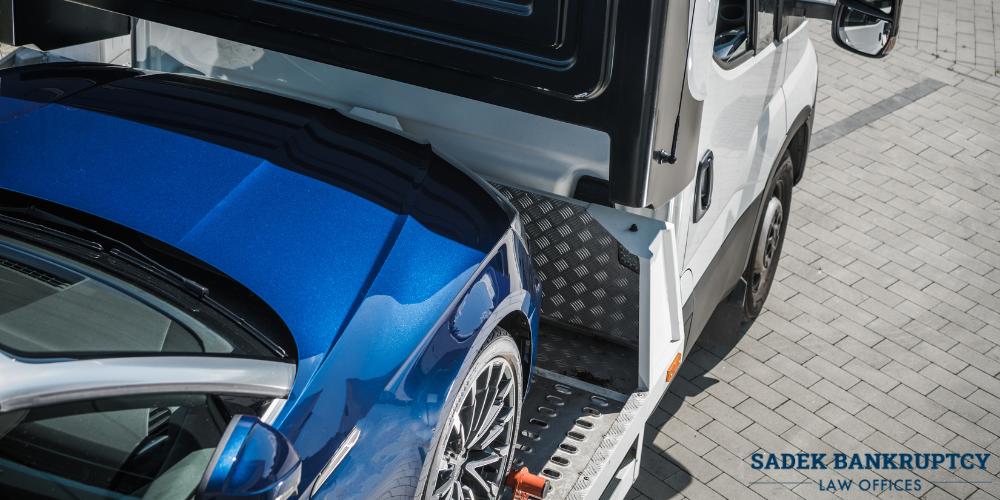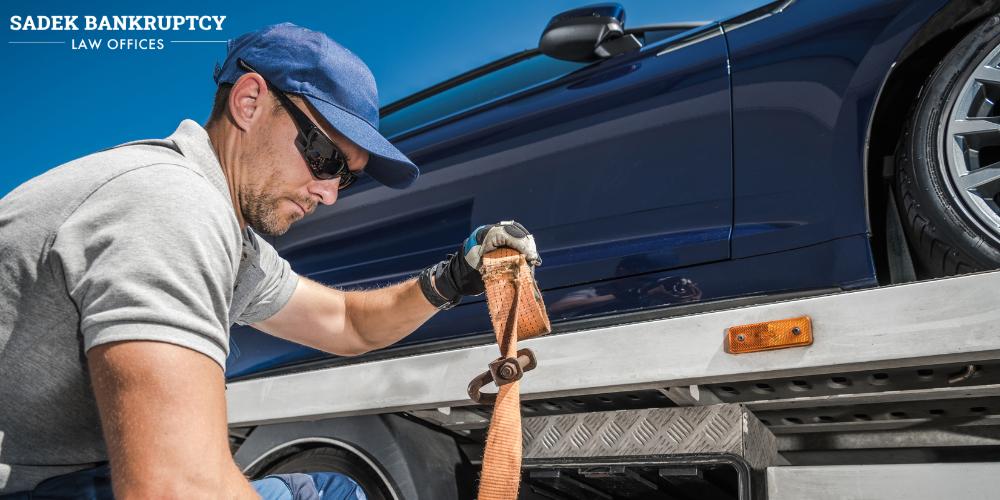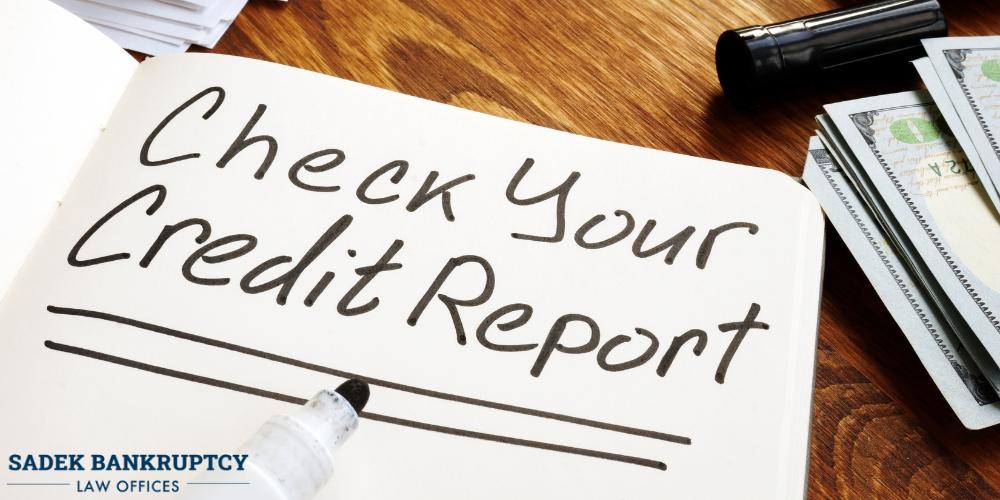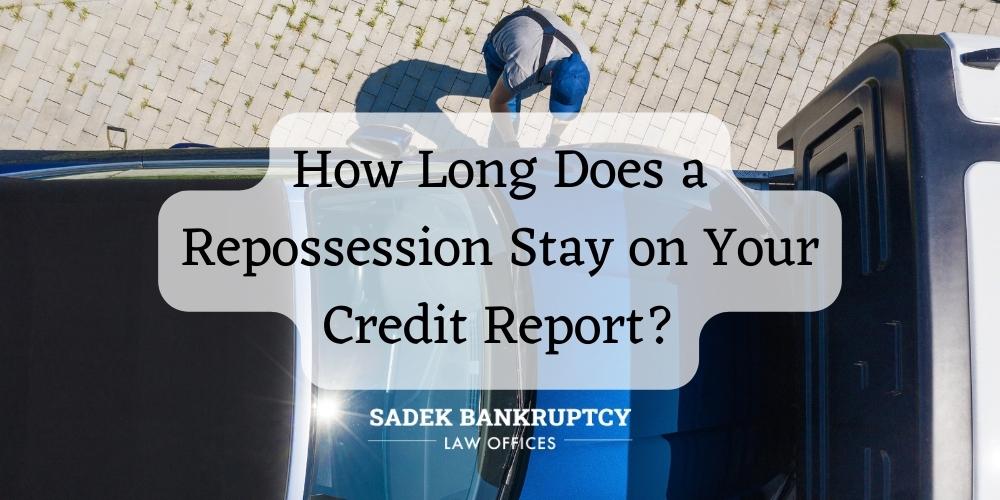How Long Does a Repo Stay on Your Credit?
Navigating the aftermath of a repossession can be a daunting experience, fraught with uncertainties about its lasting effects on your financial future. At Sadek Law, we understand the importance of clarity in such matters, especially when it comes to your car loan and credit report. So, how long does a repo stay on your credit report? And how can you get your repossessed car back?
The Philadelphia repossession attorneys at Sadek Law have considerable experience helping individuals save their cars by filing for bankruptcy. If you have defaulted on your car loan and are facing repossession, our team is here for you. To schedule a free consultation about your case, please call our office at 215-545-0008 today.
What Is Car Repossession?
Car repossession occurs when a lender takes back possession of a vehicle due to the borrower’s failure to make timely payments as outlined in the auto loan agreement. Typically, this occurs when the borrower defaults on their loan or falls significantly behind on payments. The lender, often a bank or a finance company, has the legal right to reclaim the vehicle as collateral for the unpaid debt after a missed payment.
Repossession can happen without warning, and it can have serious consequences for the borrower’s credit score and financial stability. Once repossessed, the lender may sell the vehicle to recoup the outstanding debt, though the borrower may still be responsible for any deficiency balance remaining after the sale.
Types of Repossession
Vehicle repossession typically comes in one of two forms: involuntary and voluntary. Both of these types are unique in terms of how the process is handled and in terms of how much control the borrower has over the process.
Involuntary Repossession
Involuntary repossession happens when the lender takes possession of the vehicle without the borrower’s consent, typically due to a default on the loan agreement. This can occur when the borrower fails to make payments on time or breaches other terms of the loan contract.
Involuntary repossession can be a distressing and disruptive experience for the borrower, as it often involves the lender repossessing the vehicle without prior notice. Additionally, involuntary repossession usually results in more severe consequences for the borrower’s credit score and financial standing compared to voluntary repossession.
Voluntary Repossession
Voluntary repossession occurs when a borrower willingly surrenders the vehicle to the lender due to an inability to continue making payments. This decision is often made when the borrower anticipates impending financial difficulties or recognizes that they can no longer afford the loan payments.
While voluntary repossession may seem less severe than its involuntary counterpart, it still carries significant consequences for the borrower’s credit score and financial future. However, opting for voluntary repossession may allow the borrower to negotiate more favorable terms with the lender and potentially mitigate some of the damage to their credit.
How Does Car Repossession Work?

Car repossession occurs when a lender takes possession of a vehicle due to the borrower’s failure to make timely payments on the loan. Typically, the lender will send a repossession agent to locate the vehicle and reclaim it, often without prior warning to the borrower. Once the vehicle is repossessed, it is usually sold at auction to recoup the outstanding debt.
The borrower may still be responsible for any deficiency balance remaining after the sale, depending on the terms of the loan agreement and state laws. Repossession can have serious consequences for the borrower’s credit score and personal finance. This makes it important for individuals facing financial difficulties to communicate with their lender and explore potential alternatives to repossession.
How Does Voluntary Repossession Work?
Voluntary repossession occurs when a borrower willingly surrenders their vehicle to the lender due to an inability to continue making loan payments. Typically, the borrower contacts the lender to inform them of their decision and arranges for the vehicle to be returned. While voluntary repossession may seem less severe than involuntary repossession, it still has significant consequences for the borrower’s credit score and financial standing.
However, opting for voluntary repossession may allow the borrower to negotiate more favorable terms with the lender and potentially mitigate some of the damage to their credit. After repossession, the lender may sell the vehicle to recoup the outstanding debt, and the borrower may still be responsible for any deficiency balance remaining after the sale, depending on the terms of the loan agreement and state laws.
When Do Cars Get Repossessed?
Cars typically get repossessed when borrowers fail to make their loan payments as outlined in the loan agreement. The exact timing of repossession can vary depending on the terms of the loan and state laws, but it generally occurs after multiple missed payments or a significant default on the loan.
Lenders have the legal right to repossess the vehicle once the borrower is in default, and they often send repossession agents or a debt collector to locate and reclaim the vehicle. Repossession can happen without warning, causing distress and disruption for the borrower.
What Happens If Your Car Gets Repossessed?
If your car gets repossessed, several things may happen depending on the specific circumstances and the terms of your loan agreement. First, the lender typically takes possession of the vehicle and may sell it at auction to recover the outstanding debt. After the sale, you may still be responsible for any deficiency balance remaining if the sale proceeds do not cover the full amount owed on the loan.
Additionally, repossession can have serious consequences for your credit scores, making it harder to secure future loans or credit cards. Moreover, repossession can result in additional fees and costs that you may be responsible for, further exacerbating your financial situation. It’s essential to understand your rights and options after repossession and consider seeking legal advice to navigate the aftermath effectively.
How Long Does the Repossession Process Take?
The repossession process can range from a few weeks to several months, depending on the specific circumstances involved. In some cases, lenders may wait several months before initiating repossession proceedings, while in others, repossession may occur after the first missed payment.
The timeline for the repossession process can vary depending on various factors, including state laws, the lender’s policies, and individual circumstances. Generally, the repossession process can start after the borrower misses one or more payments or breaches the terms of the loan agreement.
How Many Car Payments Can You Miss Before Repo?
The number of car payments you can miss before facing repossession depends on the terms of your loan agreement and the policies of your lender. Generally, lenders consider a borrower to be in default after missing just one payment. However, in practice, lenders often give borrowers a grace period or may attempt to work out a repayment plan before initiating repossession proceedings on auto loans.
If My Car Gets Repossessed, Can I Get It Back?

It depends. In some cases, lenders may allow borrowers to redeem their repossessed vehicles by paying off the entire outstanding loan balance, along with any repossession fees and associated costs. Additionally, some states have laws that provide borrowers with a right of reinstatement, allowing them to reclaim their vehicles by bringing the loan current and making on-time payments. However, once the vehicle has been sold at auction, your ability to get it back may be limited.
How to Get a Repossessed Car Back
Borrowers may have several options for getting a repossessed car back. These options include redeeming the vehicle, reinstatement, negotiating with the lender, and bidding at auction.
- Redeeming the Vehicle: Borrowers can often redeem their repossessed vehicles by paying off the entire outstanding loan balance, along with any repossession fees and associated costs. This usually requires a lump sum payment to satisfy the debt in full.
- Reinstatement: Pennsylvania laws provide borrowers with a right of reinstatement. This allows them to reclaim their vehicles by bringing the loan current. This typically involves paying all missed payments, fees, and any other charges associated with the repossession.
- Negotiating with the Lender: Borrowers may be able to negotiate with their lender to work out a repayment plan or settlement agreement that allows them to regain possession of the vehicle. This could involve restructuring the loan terms or negotiating a reduced payoff amount.
- Bidding at Auction: If the repossessed vehicle is sold at auction, borrowers may have the opportunity to bid on the vehicle and repurchase it. However, they would need to outbid other potential buyers and pay the auction price, along with any outstanding debt owed to the lender.
How Soon Can I Get My Repossessed Car Back?
The timeline for getting a repossessed car back can vary depending on several factors, including state laws, lender policies, and your ability to address the outstanding debt. In some cases, borrowers may have the opportunity to reclaim their repossessed vehicle shortly after it has been repossessed by redeeming it or reinstating the loan.
However, this typically requires paying off the entire outstanding loan default, along with any repossession fees and associated costs, which may not be feasible for all borrowers. Negotiating with the lender or bidding on the vehicle at auction, if applicable, may also take time and may not guarantee that you’ll regain possession of the vehicle.
How Much to Pay to Get Car Back After Repo
The amount someone has to pay to get their car back after repossession depends on the terms of their loan agreement, the outstanding loan payments, repossession fees, and other costs. To regain possession of the repossessed vehicle, the borrower typically needs to satisfy the entire outstanding loan balance, including missed payments, accrued interest, and any applicable fees. Additionally, borrowers may need to cover repossession expenses, such as towing and storage fees. In some cases, lenders may also require payment of additional charges or penalties.
How to Get a Repo Off Your Credit Report
Getting a repossession removed from a credit report can be challenging but is not impossible. Some steps to take to get a repossession removed from your credit reports include negotiating with the lender, offering a pay-for-delete agreement, disputing the credit history with the major credit bureaus, and rehabilitation programs.
- Negotiating with the Lender: Contact the lender who initiated the repossession to try settling the debt or making a payment arrangement. They may be willing to remove the repossession in exchange for payment of the debt or for a settlement amount.
- Pay-for-Delete Agreements: A pay-for-delete agreement is one in which you agree to pay the outstanding debt in full or settle for a lesser amount. In exchange, the lender removes the repossession from your credit report.
- Disputing the Credit History: If the repossession entry is inaccurate, you can dispute it with the three major credit bureaus. They will investigate and remove any inaccurate or unverifiable information from your credit reports.
- Rehabilitation Programs: Some lenders offer rehabilitation programs that allow borrowers to regain control of their repossessed vehicle by making agreed-upon payments. Successfully completing such programs may lead to the removal of the repossession from your credit report.
How Bad Does Repo Hurt Your Credit?
So, how does repossession affect your credit score? Because payment history is so important to one’s score, a repossession is a serious derogatory mark on your report that can remain on your credit report for seven years. Typically, a repossession can cause a significant drop in your credit score.
This can make it harder to obtain credit in the future, and potentially result in higher interest rates and borrowing costs. The negative effects of repossession may linger for a while, even after the repossession itself has been resolved.
How to Fix Credit After a Car Repossession

Individuals can take several steps to improve their credit score after a car repossession. Firstly, they should focus on making all future payments on time and in full to demonstrate responsible financial behavior. Additionally, paying down existing debts and keeping credit card balances low can positively impact credit utilization ratios. It’s also beneficial to review their free credit report regularly for errors or inaccuracies and dispute any discrepancies with each credit bureau.
Moreover, applying for a secured credit card or becoming an authorized user on someone else’s account can help establish a positive payment history. Over time, responsible credit management habits combined with patience and perseverance can lead to gradual improvements in their credit score.
Contact the Philadelphia Car Repossession Lawyers at Sadek Law
Understanding how repossession affects your credit report is crucial for navigating the complexities of your financial journey. At Sadek Law, we recognize the challenges that come with a repossession and the impact it can have on your financial well-being. While a repossession may linger on your credit report for up to seven years, it’s important to remember that it’s not a permanent stain on your financial record.
With strategic planning, responsible financial habits, and guidance from experienced professionals, you can take proactive steps towards rebuilding your credit and securing a brighter financial future. If you’re facing repossession or other financial difficulties, don’t hesitate to reach out to our team for personalized assistance and guidance tailored to your unique situation.





